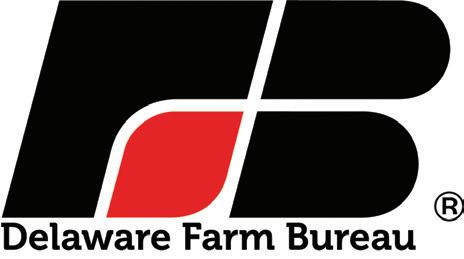

Farm Bureau News
Local Farmers Feeding Your Family
Farm Bureau groups award $9,500 in scholarships
Casey Lynn Collier, daughter of Tommy and Vonda Collier of Harrington, is winner of the $2,500 Delaware Farm Bureau State Scholarship. Having graduated in May 2018 from Del Tech, she will transfer to Wilmington University where she will study agribusiness management and environmental science and policy. While at Lake Forest High, Casey participated in field hockey, indoor and outdoor track and field, cross country and swim team. She was a 4-H member for nine years, helped the Burrsville Ruritan Club
where her grandfather is a member and helped at Delaware Farm Bureau and YF&R events such as the fair food booth for several years. Since going to college, she has joined FFA. Casey has always helped on the farm and, in addition, worked summer and parttime jobs while at Del Tech.
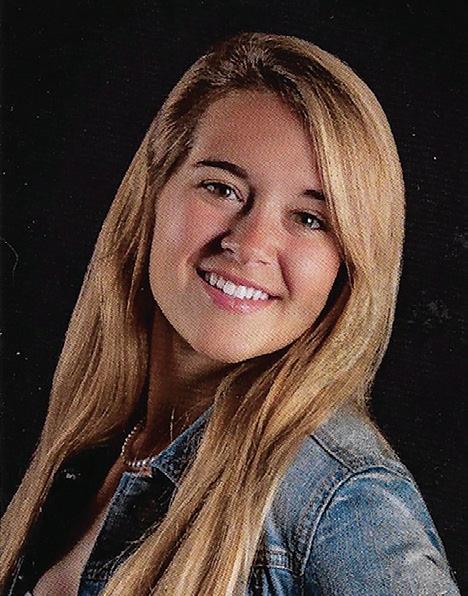

The Kent Women’s $1,000 scholarship was presented to Adam Collier, Casey’s young brother, who graduated from Lake Forest High School this year. Like his sister, Adam has always helped on the family farm, assuming a number of responsibilities as he grew older. He has been a member of 4-H for 10 years and was a member and officer of his FFA chapter in high school. Adam has already earned 12 college credits and will continue his education at Del Tech, majoring in agriculture production.
Kent County Farm Bureau presented its $1,000 scholarship to Ryan Wheatley, son of Michael and Kim Wheatley of Clayton. Ryan is also the recipient of a $1,000 scholarship from DFB’s Young Farmers & Ranchers. A graduate of Smyrna High School, he plans to attend Virginia Tech to
CONTINUED ON PAGE 4
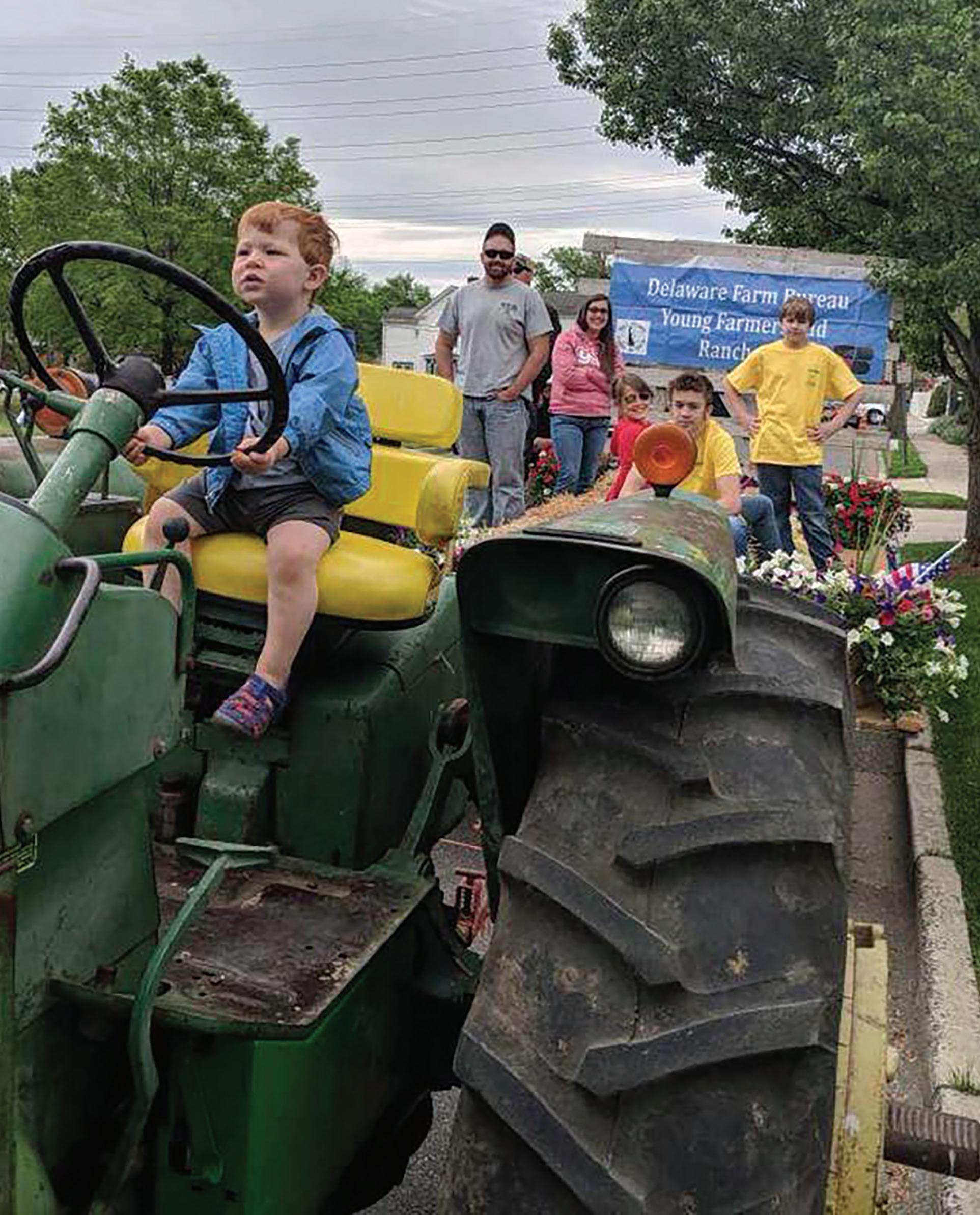
Brant Bobola, almost-2-year-old son of Teddy and Rebecca Bobola, obviously can't reach the pedals on the tractor which would later pull the Young Farmers & Ranchers’ float in the Dover Days Parade held May 1. YF&R members used the occasion to hand out 800 postcards advertising their upcoming strawberry festival.
Still time to complete the Census of Ag
Every five years the Agriculture Department conducts the Census of Agriculture. This data on farm production and demographics is used to develop and shape farm programs. For example, the 2017
Census is expected to “assist in further development of initiatives that benefit young and beginning farmers and ranchers; expand access to resources that help women, CONTINUED ON PAGE 3
Casey Lynn Collier
Adam Collier
From the President's desk ...
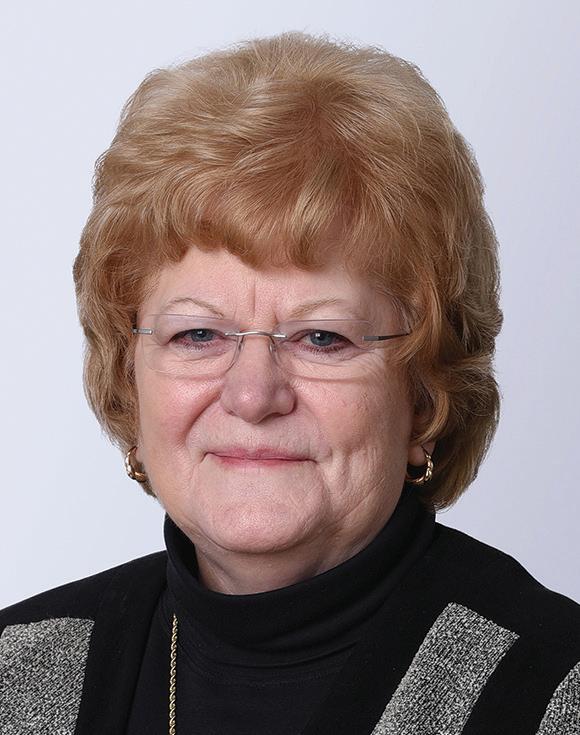
Farm Bureau leaders across the United States have been sowing the seeds for the 2018 farm bill for many months. Soon we may see the fruits of our labor. As you know, H.R. 2—the Agriculture and Nutrition Act of 2018 is expected to be “reconsidered” prior to the June 22 deadline. Speaker of the House, Paul Ryan, voted against the bill to preserve the right to “reconsider,” and a revote for H.R.2 will immediately follow without any amendments or changes to the original version.
Last week, the Senate Ag Committee passed the farm bill in a 20-1 vote. Senate Majority leader Mitch McConnell, R-Ky., hopes to bring the measure to the Senate floor before the July 4 recess. If passed by both chambers, the bill will go to conference to iron out differences.
The American Farm Bureau Federation understands the importance of bringing predictability and certainty to farm families across the nation. Farmers want to keep agriculture progressing and sustainable for current and future generations. We need a farm bill to provide effective risk management plans in the form of federal crop insurance, continue to streamline and improve conservation programs and promote critical research and development for farming practices.
AFBF coordinates weekly conference calls to update Farm Bureaus on the status of H.R.2, as well as the newly released draft of Senate’s version – the Agriculture Improvement Act of 2018. Chairman Conaway personally participated in a call last week to provide an update on the House version,
and Chairman Roberts and Senator Stabenow’s Ag Policy Advisors participated in a call last week.
AFBF President Zippy Duvall remarked after the Senate vote:
“Farmers and ranchers welcome today’s markup and passage of the farm bill by the Senate Agriculture Committee. Low commodity prices, rising interest rates and an uncertain future for exports hang heavy over America’s farm and ranch land. But today’s vote means light on the horizon. We know that Congress is determined to see us continue to provide food security, fuel and fiber for all Americans.
“We applaud the spirit of cooperation shown in today’s 20-1 vote, and are eager to see that carry through on the floor of the Senate in the coming days. The American Farm Bureau Federation thanks Chairman Roberts and Ranking
Member Stabenow for bringing this important legislation forward. Farmers and ranchers are counting on our lawmakers to come together and pass the farm bill soon, followed quickly by the President’s signature.”
Earlier, Duvall said, “Our legislators should understand how important the farm bill is to agriculture and our rural economy. As a nation, we have the chance to support good nutrition for all and work together to protect the safe, affordable food supply we all depend on.”
A core purpose of a farm bill is to help farmers and ranchers weather factors beyond our control, including weather, natural disasters, disease, and high and rising foreign subsidies, tariffs and non-tariff trade barriers.
The food and agriculture sector
supports more than 21 million U.S. jobs, and contributed $992 billion to U.S. gross domestic product in 2015. Agriculture and its related industries is the single largest U.S. manufacturing sector, representing 11 percent of all U.S. jobs.
Farmers and ranchers are doing their part to help restrain federal spending. The farm bill reported by the House Agriculture Committee abides by the Committee’s commitments under the FY 2018 budget resolution and is on target to contribute more than $112 billion to deficit reduction over the next 10 years. These savings are roughly five times greater than initially pledged.
The new working standards and guidelines for education programs proposed in the Agriculture and Nutrition Act of 2018 would give
Sean McKeon named state FSA director
The Trump Administration recently appointed Sean McKeon as the new State Executive Director (SED) for the USDA Delaware Farm Service Agency (FSA). McKeon began his new position on May 14, 2018.
McKeon, of Milford, Delaware, has more than 25 years of experience in public policy and legislative relations. He most recently served as director of communications and community relations for Mountaire Farms Inc., the seventh largest poultry processor in the nation. McKeon has also served as association president for the North Carolina Fisheries Association, and was the founder and executive director of the Northeast Regional Forest Foundation. He attended New York’s Columbia College where he studied political science and law.
The Farm Service Agency offers farmers a strong safety net through the administration of farm commodity and disaster programs. FSA continues to con-
If you have deer damage...
• Learn about the Severe Deer Damage Assistance Program at www.de.gov/fw or contact Delaware's Division of Fish & Wildlife at 302-735-3600.
• For assistance with harvesting deer, contact Chris McKinley at the Delaware Master Hunter Program, 302-293-0064 or chrisdu850@ gmail.com.
serve natural resources and also provides credit to agricultural producers who are unable to receive private, commercial credit, including special emphasis on beginning, underserved and women farmers and ranchers.
As SED, McKeon will use his leadership experience to oversee FSA programs in a customer-focused manner to ensure a safe, affordable, abundant and nutritious food supply for consumers.

Delaware Farm Bureau News
Editor
Carol Kinsley carol.kinsley@defb.org Graphics/Production Designer Heather Kline heather.kline@defb.org 302-697-3183
Delaware Farm Bureau News (ISSN 10770798), published in Camden, DE, bimonthly, by Delaware Farm Bureau. Production by Delaware Printing Company. Periodicals postage paid at Camden, DE and additional offices.
Business and Editorial Offices: 3457 S. DuPont Highway, Camden, DE 19934, 302-697-3183.
Any editorial material may be reproduced with credit to this publication.
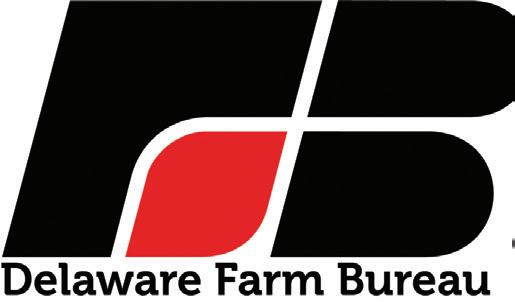
POSTMASTER: Send address changes to Delaware Farm Bureau News at the office above.
Delaware Farm Bureau
President Kitty Holtz
Sean McKeon
DNREC seeks help monitoring mosquito-borne diseases in birds
The Delaware Department of Natural Resources and Environmental Control’s Mosquito Control Section within the Division of Fish & Wildlife is seeking the public’s help in monitoring West Nile virus in Delaware by reporting sick or dead wild birds that may have contracted the virus. West Nile virus (WNV) is a mosquito-borne disease of considerable concern to human health and to owners of unvaccinated horses.
The Mosquito Control Section requests that the public report sick or dead birds of the following species only: crows, blue jays, cardinals, robins, hawks or owls, plus clusters of five or more sick or dead wild birds of any species. Bird specimens should have been
dead for less than 24 hours and not appear to have died from other obvious causes. Mosquito Control notes that uncollected dead wild bird specimens are very unlikely to transmit WNV to humans or pets.
“We are again tracking when and where West Nile virus might appear in Delaware this year and monitoring its possible spread throughout the state,” said Dr. William Meredith, Mosquito Control Section administrator. “Our sampling strategy is to collect and test birds from now into September.”
Birds collected by DNREC are processed by the Delaware Department of Agriculture’s Poultry & Animal Health Lab, and then submitted to the Division of Public Health Lab for virus testing.
President's desk ...
CONTINUED FROM PAGE 2
Americans struggling with poverty not only access to the nutrition they need, but also a pathway to learn and enter a new career and get back on their feet.
As farmers, we want to see the food we grow get to all Americans’ plates. Our nation’s ability to raise the next generation of citizens, soldiers and leaders depends on it.
Nutrition, the rural economy and the environment improve when our farms are financially stable. All Americans benefit when farmers can survive economic downturns, deal with Mother Nature and provide fuel, fiber and food security for America.
President Duvall is personally invested in this issue and a strong voice for all farmers and ranchers. I would like to publicly thank him for providing state Farm Bureaus the opportunity to personally discuss the farm bill with Chairman Conway and Policy Advisors for
Chairman Roberts and Senator Stabenow.
We have obviously moved from “delay” to moving forward very quickly. As we receive updates, Delaware Farm Bureau will share the information with you through our social media accounts and our electronic newsletter. To receive timely updates, contact Heather Kline at Heather.Kline@defb.org and “like” us on Facebook and Instagram.
AFBF’s Advocacy Team provides updates at https://www. fb.org/advocacy/farmbill/ and, on the Senate bill, at https:// www.dropbox.com/s/dg9zi9hln7pemz5/Farm%20Bill%20 Slides%20Senate.pptx?dl=0 .
As farmers and ranchers, we can speak up on how important these programs are to our livelihood and our ability to grow the food, fuel and fiber we all enjoy. I urge you to contact your Congressional representatives and encourage them to pass the farm bill.
Still time to complete the Census of Ag ...
CONTINUED FROM PAGE 1
veteran and minority farmers and ranchers; and help farmers and ranchers diversify into new markets, including local and regional food systems, specialty crops and organic production.”
USDA began distributing the Census in December 2017 and the National Agricultural Statistics
From July through mid- to late-October, DNREC’s Mosquito Control Section also operates a statewide network of about 20 sentinel chicken stations in prime mosquito areas. The DPH lab tests blood samples from the sentinel chickens for WNV and Eastern equine encephalitis (EEE), another mosquito-borne viral disease that affects humans and horses. The results help indicate where WNV or EEE has been transmitted by mosquitoes from wild bird hosts to other animals, possibly leading to an increased risk of exposure for humans or horses. Neither WNV nor EEE can be transmitted between horses or from horses to people.
The period of greatest concern for disease transmission for WNV and EEE is late summer and early fall. WNV is transmitted to humans primarily by the common house mosquito, and possibly by the Asian tiger mosquito.
The disease first appeared in Delaware in 2001. Last year, Delaware had one human case and two equine cases, with the last cases of EEE detected in two horses in
2013. Nationwide, the Centers for Disease Control logged 2,022 reported human cases of WNV last year resulting in 121 deaths, 10 of which occurred in our region.
Four other mosquito-borne diseases of concern that can occur in Delawareans are malaria, dengue fever, and chikungunya and Zika viruses. Cases of these four diseases are almost always found in travelers returning from tropical or sub-tropical regions where these illnesses are more prevalent. None involve wild birds as hosts, but rather are transmitted by mosquitoes from person-to-person.
To report sick or dead birds, call Mosquito Control’s field offices between 8 a.m. and 4 p.m., Monday through Friday:
• New Castle County and Kent County from Dover north, Glasgow office: 302-836-2555
• Remainder of Kent County and Sussex County, Milford office: 302-422-1512
Residents also are encouraged to call 302-739-9917 to report intolerable numbers of biting mosquitoes and request control services.
Service is expected to wrap up data collection via the paper questionnaire by June 15.
Producers have until the end of July to complete the online Census, and USDA will conduct follow-up phone interviews with farmers and ranchers through July. Farmers have until the end of July to complete the Census online.

Farm Bureau groups award $9,500 in scholarships ...
CONTINUED FROM PAGE 1
major in dairy science and wildlife management. He has worked on the family’s Duland Farms all his life. He has been active in FFA, holding offices of treasurer and, mostly recently, president. He was also a member of Business Professionals of America, National Honor Society, Student Government Association, Letterman’s Club, Blue/Gold Club and National Technical Honor Society, all while playing football and tennis at school. He is a lifetime member of the Delaware Holstein association and was in
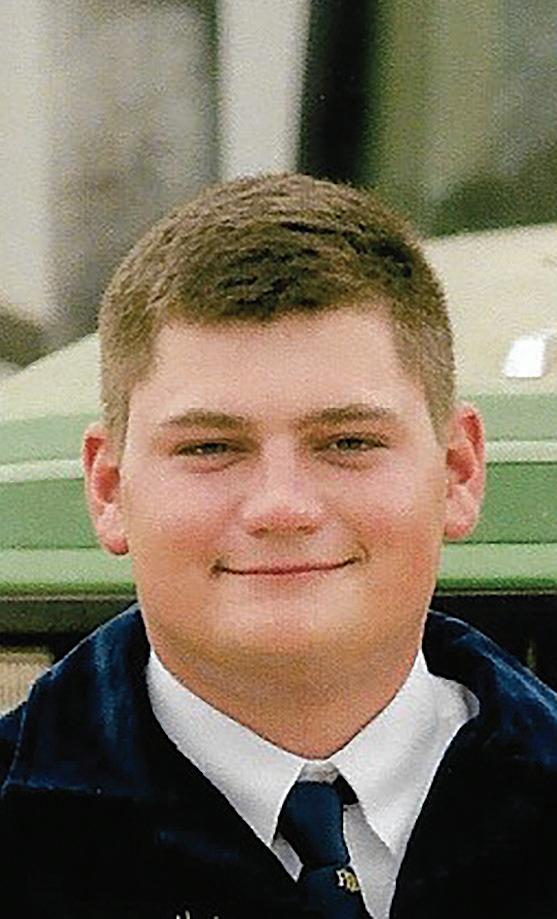
4-H from age 5 to 12. The Sussex County Women’s Committee Scholarship of $1,000 went to Hannah O’Hara, daughter of Thomas and Diane O’Hara of Milford. While at Sussex Tech, Hannah was active in the Student Government Association, Honor Society, Business Professionals of American and the Business Leadership Team. She was captain of the Ravens’ marching band color guard. She has worked 12 hours a week for a local produce stand for the last nine years. She is a 10-year 4-H member and for two years served on the Delaware State Fair Junior Fair
Board. For six years she has been a member of the Memorial Fire Company Ladies Auxiliary. Hannah wants to be a real estate agent and perhaps run for political office. She will attend Susquehanna University to major in luxury brand marketing and Management, with a minor in leadership and photography.
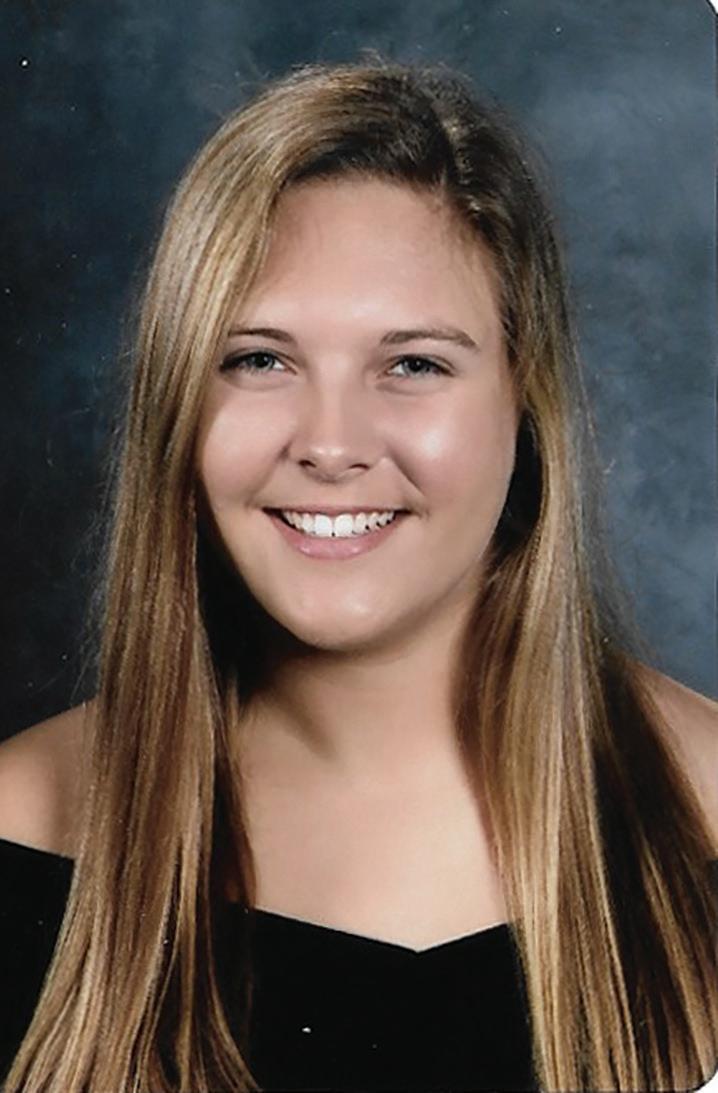

New Castle County Farm Bureau’s $1,000 scholarship was presented to William Hart III, son of William and Sharon Hart of Middletown. William graduated from Paul M. Hodgson Vo Tech in May. While his initial course of study was plumbing, he now wants to be a forensic scientist. He will study biology at Arcadia University or Neumann University before doing graduate work in forensic science.
mittee Scholarship of $1,000. Son of Nicholas and Kristine Mottola, he lives in Wilmington and graduated from Archmere Academy where he was active in football, wresting, lacrosse and cross country. He worked last summer at White Clay Creek State Park and volunteered at the Delaware Museum of Natural History. He plans to attend Virginia Tech to major in fish conservation and minor in wildlife conservation.

William was a member of the student council and the LYNK (drug/alcohol awareness) club for all four years of high school and was in the Honor Society for his last two years. He played baseball on junior varsity and varsity teams. He was involved in several fund-raising events for cancer charities and went to India on a mission trip with his church. He has worked at landscaping and as bus staff in restaurants.
Josh Mottola won the New Castle County Women’s Com-

Gillian Cannon of Seaford is the recipient of YF&R’s second $1,000 scholarship. Daughter of Shari Cannon, she is a 2018 graduate of Seaford High School. Due to her commitments to Delaware FFA to serve as State Secretary next year, Gillian plans to delay her studies at Delaware Valley University. She has decided to first pursue an associate’s degree from Del Tech. She plans to major in production agriculture and minor in environmental science, with the ultimate goal of starting her own greenhouse operation or floral shop. “Through the FFA, I have found an unfathomable love for agriculture and a desire to give back to my school and community,” Gillian wrote in her application. While maintaining a GPA of 102 and being actively involved in FFA, she was captain of the volleyball team, a member of the Student Government Association, manager of the Seaford swim team, a member of the Principal’s Advisory group, member of her church youth group and a volunteer for Ducks Unlimited.

Ryan Wheatley
Hannah O'Hara
William Hart III
Josh Mottola
Gillian Cannon
YF&R kicks off summer with successful strawberry festival
Delaware Farm Bureau Young Farmers & Ranchers had the most successful strawberry festival so far, in both children's wristband sales as well as food sales. Although rain was forecast, it held off until activities were over. Held May 26 at Bobola Farm and Florist in Dover, the festival attracted visitors from all over the area who couldn’t wait to taste fresh, red-ripe, local strawberries. Wagon rides to the U-pick strawberry patch ran non-stop during the entire festival.
Music by "Captain Mike" was enjoyed by all, and the children
loved the petting zoo, barrel cart rides, obstacle course, bounce house, games and face painting.
Ice cream donated by Woodside Creamery was a crowd favorite again. The pulled pork was sponsored this year by Enoch Stevenson, Farm Family agent in Camden. The group sold out of strawberry shortcake.
Proceeds from the day go into YF&R’s general fund that promotes leadership training, benefits community assistance, provides scholarships, and supports the FFA and 4-H through the Livestock Auction at the Delaware State
Connect
with us!
Fair. A committee of the Delaware Farm Bureau which dates back to 1954, the YF&R program includes both women and men between the ages of 18 to 40 whose objective is to attract hard-working agricultural professionals and advocates through professional development and social networking activities; to empower future Delaware Farm
Bureau leaders and to increase interest in agriculture as a way of life.
YF&R’s next big event is the 24th Annual YF&R Antique Tractor Pull at the State Fairgrounds in Harrington on Saturday, July 28.
For more information on the YF&R, visit www.defb.org, or follow the YF&R on Facebook.
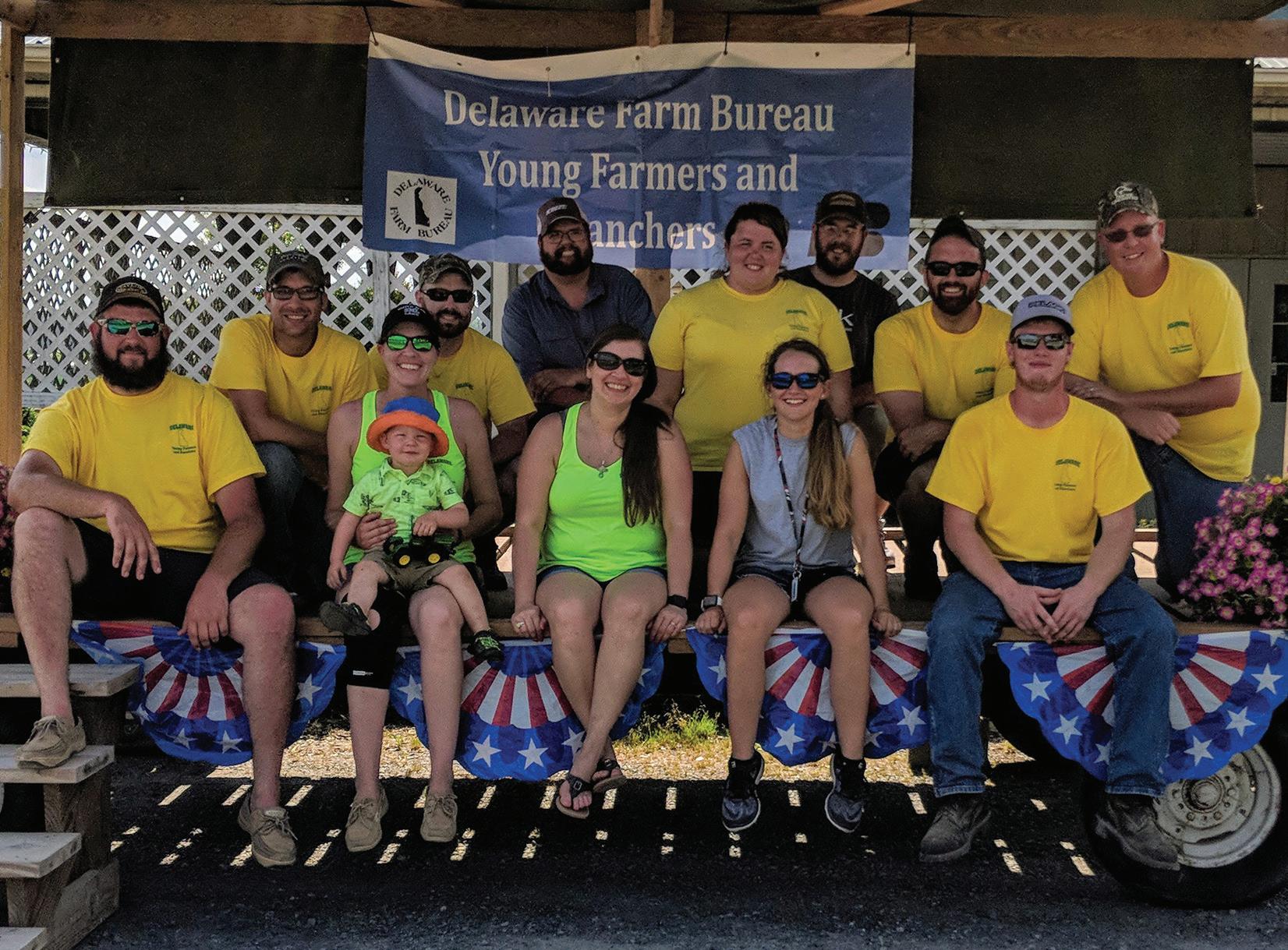

Book Barns provide 'ag accurate' reading for elementary students
Delaware Farm Bureau's Promotion and Education Committee took on a project to provide custom-made barn-shaped bookcases to elementary school libraries to house "ag accurate" books, which the P&E Committee

Connie Fox, Sussex County Farm Bureau Women's chair, delivered a book barn to Milton Elementary and read "John Deere, That's Who" to a class in the library, where students will be able to check out books on agriculture.

also provides. As of now, 24 schools and four organizations have Book Barns. The goal is to have every school with a Book Barn placed in the next three years and to continue to provide books as funding is available.

Stewart Ramsey, New Castle County Farm Bureau President and chair of the Promotion and Education Committee, read to students at Brick Mill Elementary School in Middletown.
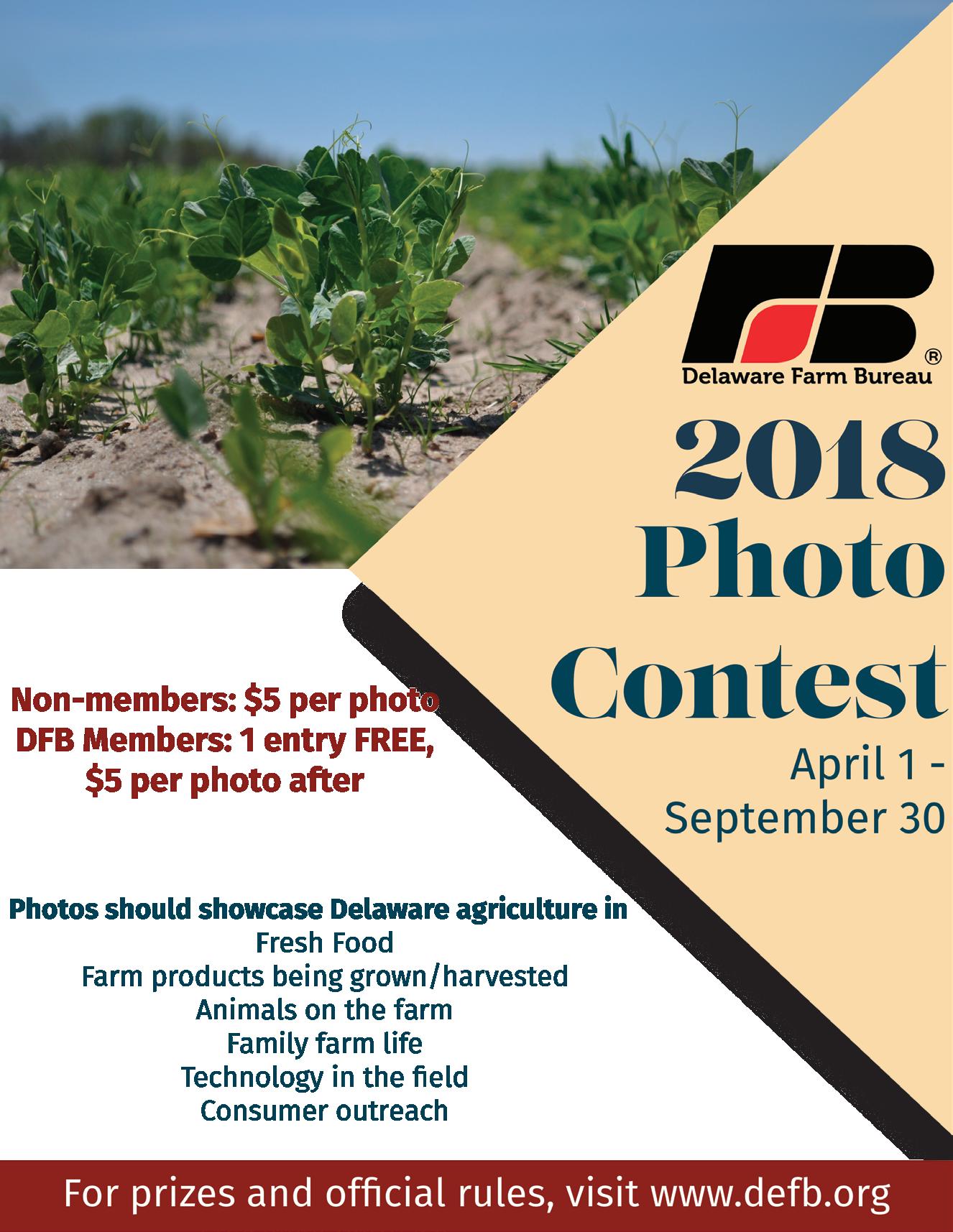
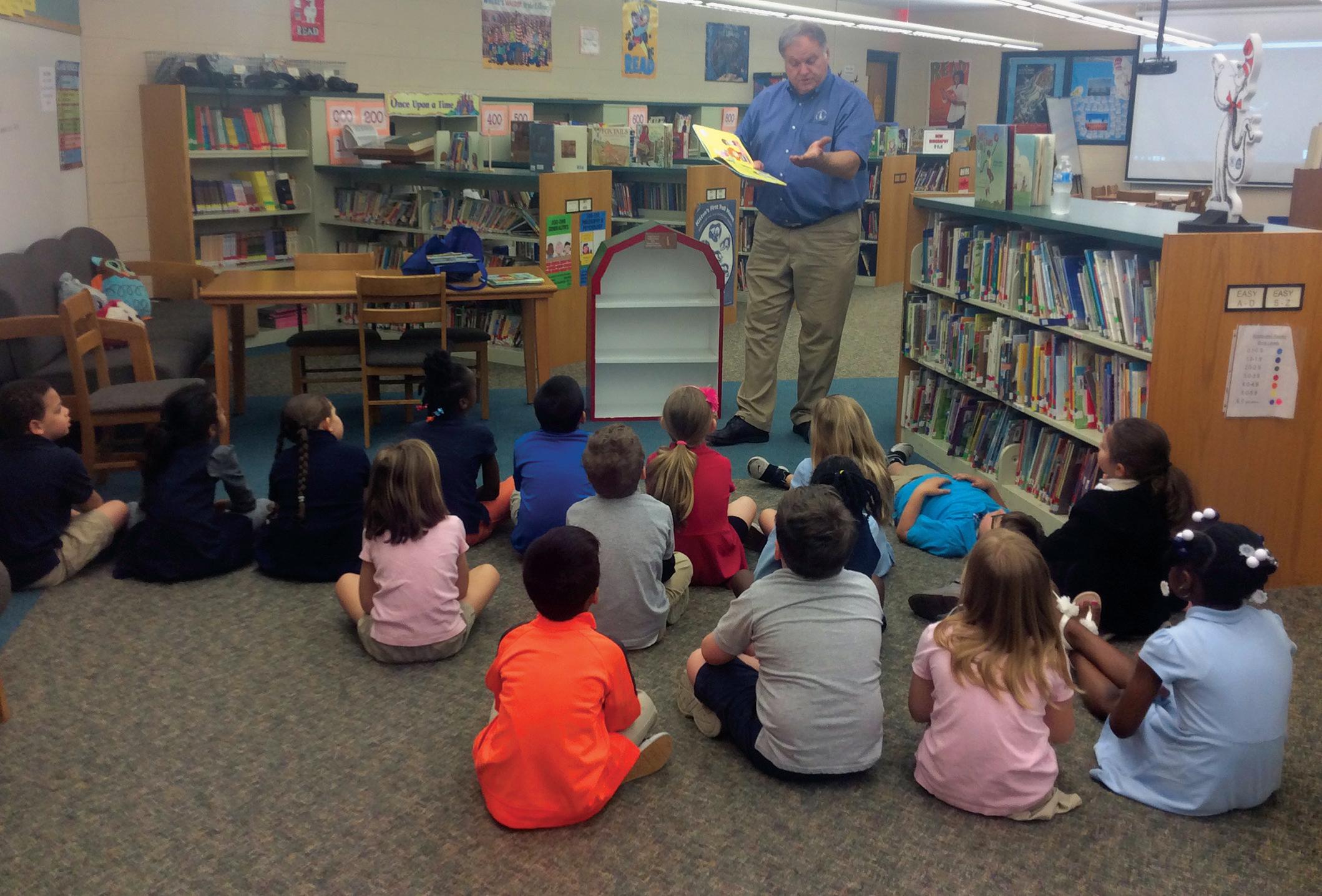

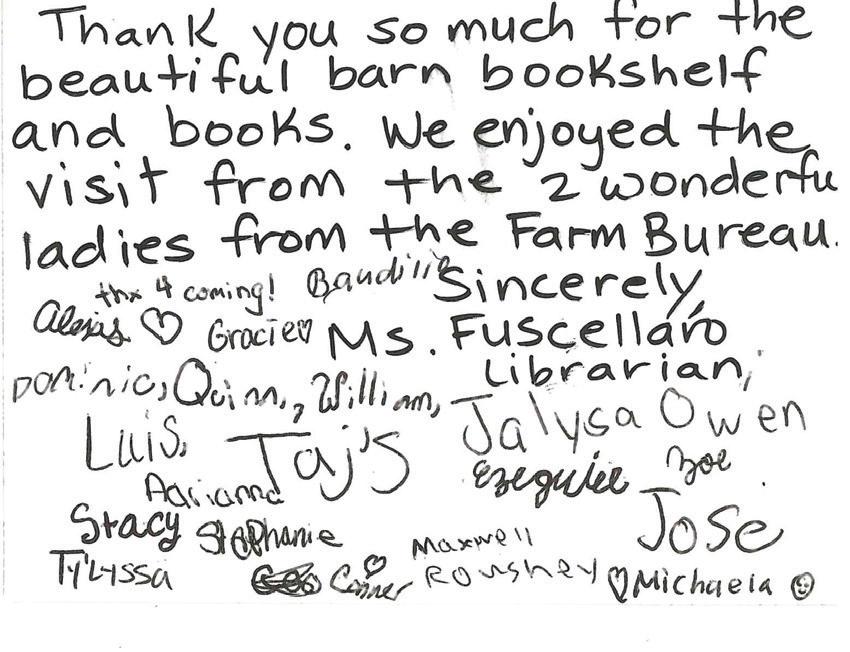
Top left: Stewart Ramsey, chair of Delaware Farm Bureau's Promotion and Education Committee, which sponsors the Book Barn program, reads to students at Forwood Elementary School in Wilmington.
Above, far right: Delaware Farm Bureau staff member Jan Cartanza reads to children at South Dover Elementary and answers questions about farming.
Above, left (inset): The new Book Barn with "ag accurate books" is prominently located in the media center at Central Elementary in Seaford.
Above, right, students and the librarian at Milton Elementary sent a thank you note for their new Book Barn and books.

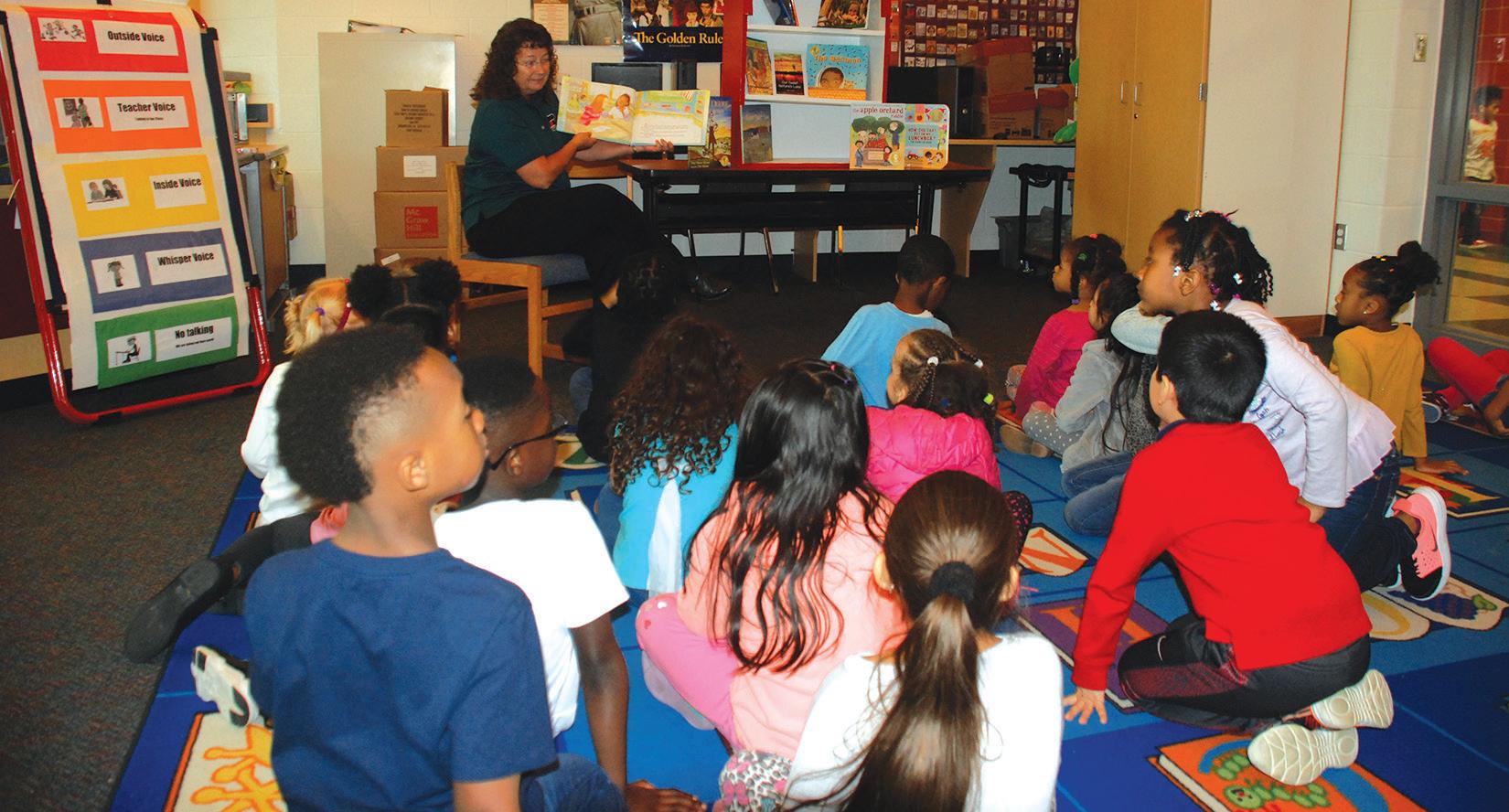

Federal legislation would allow industrial hemp production
The American Farm Bureau Federation is backing a measure that would allow U.S. farmers to tap into the potentially sizable market for ingredients derived from industrial hemp in foods and beverages, cosmetics and personal care products, nutritional supplements, fabric and textiles and much more. The Hemp Farming Act of 2018 (S. 2667) would remove hemp’s designation as a Schedule 1 controlled substance by the U.S. Drug Enforcement Agency.
Rep. James Comer (R-Ky.) has introduced companion legislation (H.R. 5485) in the House.
For nearly 70 years industrial hemp has been wrongly associated with its cannabis cousin, marijuana. As a result, a great deal of agricultural heritage in hemp seed genetics, crop research and technological innovation has been hindered or lost entirely, according to AFBF.
In addition, the Congressional Research Service has determined that the United States, the only major industrialized country in which farmers are not allowed to
legally grow industrial hemp, is the largest importer of hemp materials, with annual sales exceeding $600 million.
“However, the tide is turning, and once again policymakers in Washington, D. C., and state houses across the country recognize the tremendous potential that industrial hemp can offer farmers as an effective rotational crop with promising economic benefits,” AFBF
President Zippy Duvall wrote in a letter to Sen. Majority Leader Mitch McConnell (R-Ky.), the legislation’s lead sponsor.
With the passage of the 2014 farm bill, and under the supervision of research universities or state departments of agriculture, states were authorized to “study the growth, cultivation, or marketing of industrial hemp.” Since then, more than 30 states, including Delaware, have passed legislation legalizing this type of research, but its full-fledged production and commercialization is extremely hindered by its current designation as a Schedule 1 controlled substance.
Chapter 28 of the Delaware es-

tablishes an industrial hemp research program overseen by the state Department of Agriculture. It allows DDA to certify institutions of higher education to cultivate hemp for research purposes.
A similar law was passed in Pennsylvania, and Delaware Valley University will soon study best practices for growing hemp. They might want to study Benjamin Franklin’s treatise published in Poor Richard’s Almanac in 1765, entitled “The Method of Raising Hemp in Pennsylvania.”
Before the Revolutionary War, abundant stands of rank hemp grew 10 to 16 feet tall on farms in all 13 colonies.
The state of Maryland has also authorized its Department of Agriculture or institutions of higher learning to grow hemp for research purposes and, went a step farther, establishing a license allowing individuals to plant, grow, harvest, possess, process, sell or buy industrial hemp in the state — in conjunction with a sponsoring university —effective July 1, 2018.
A recent article distributed by
Maryland Farm Bureau, written by Colby Ferguson, Government Relations Director, explained there are three primary commodities produced in industrial hemp production.
Hemp seed is the one most consumers see when in a grocery store. Hemp seed is high in protein (31 percent) with an amino acid profile similar to soy. This could make hemp seed meal a good alternative bypass protein source for livestock feed. It is high in total fat (49 percent), making the refined oil highly sought after for similar uses as soybean oil.
2) The fiber from the stalk of the plant can be refined to be used for textiles and clothing, as well as used in building materials such as insulation, car paneling, and the fibrous material in concrete block and walls.
3) The third, and most likely the most profitable, product generated from the hemp plant is the a medicinal product, Cannabidiol (CBD), which is refined from the flower and leaf of the plant.
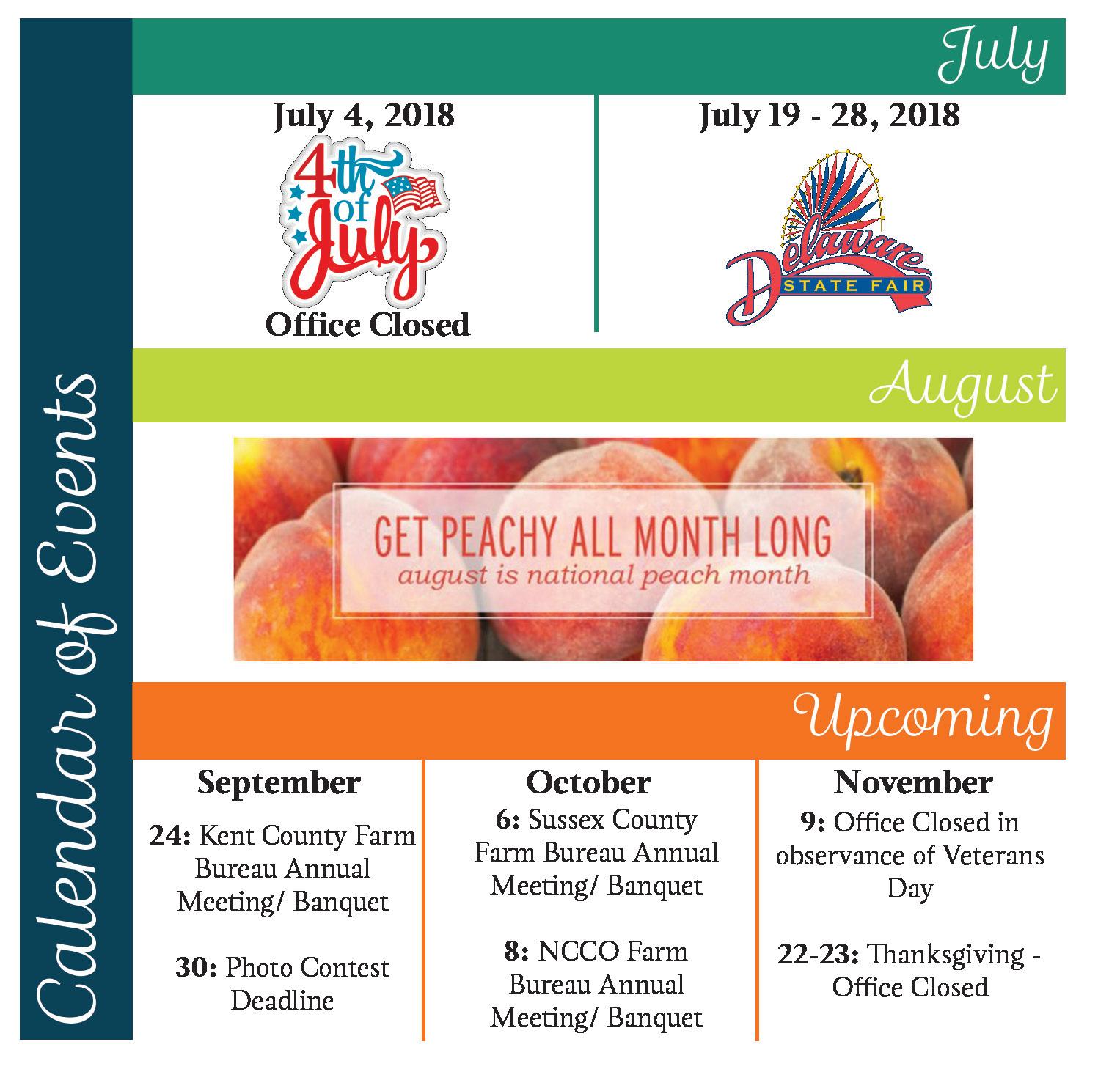

Ag Lab entertains, educates
The Delaware Farm Bureau Foundation's Ag Lab was kept busy this spring visiting elementary schools. This class was at Central Elementary in Seaford.
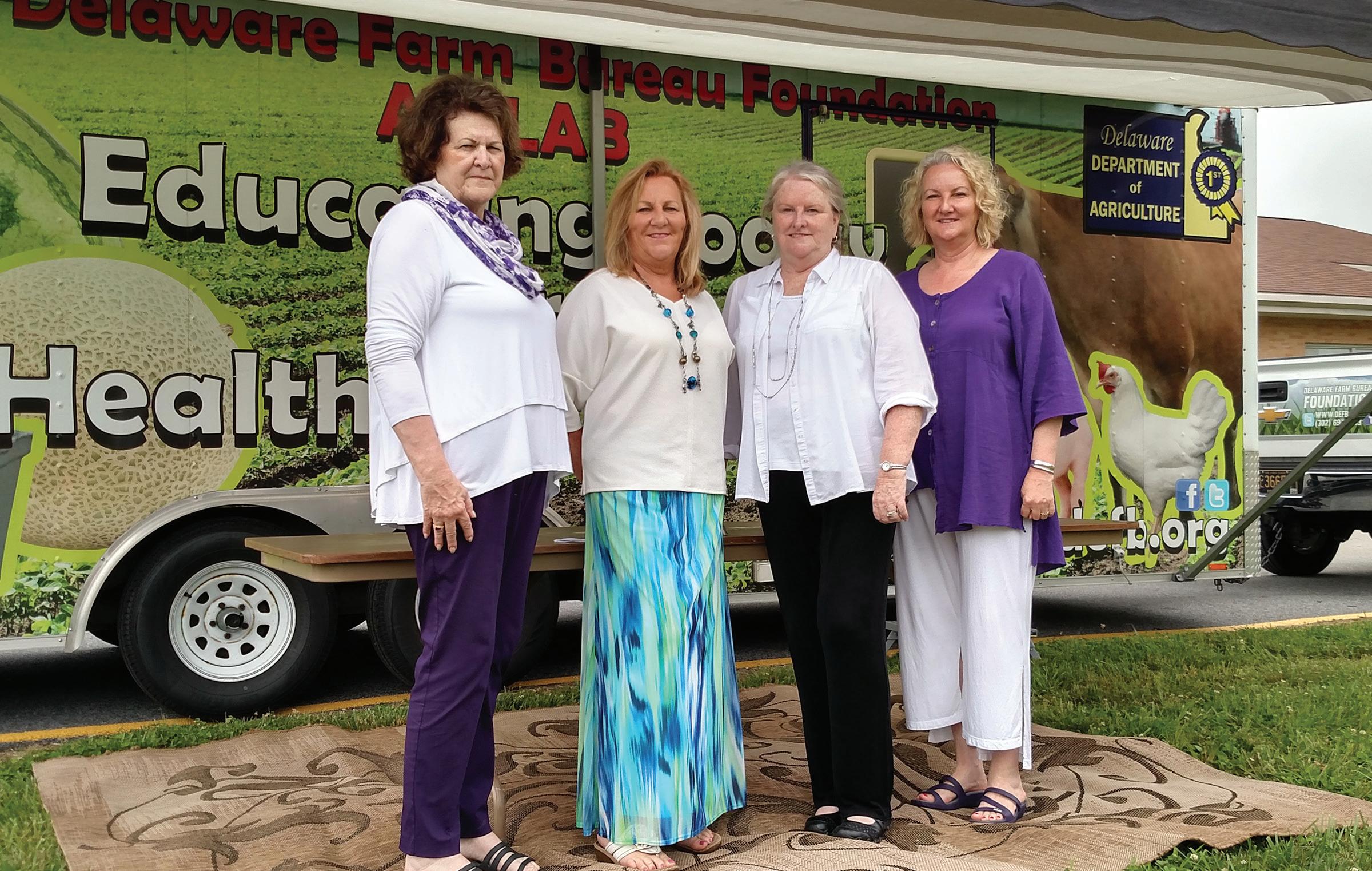
Kings donate $1,000 to Delaware Farm Bureau Foundation
The King sisters — Donna, Jackie, Bonnie and Nancy —visited the Ag Lab set up at Central Elementary School in Seaford on May 31 to present the Delaware Farm Bureau Foundation with a $1,000 donation check from the Catherine D. King and Edwin Reese King Fund, part of the Delaware Community Foundation. The King family owns and operates King Crop Insurance of Georgetown and has long been a supporter of Delaware Farm Bureau.
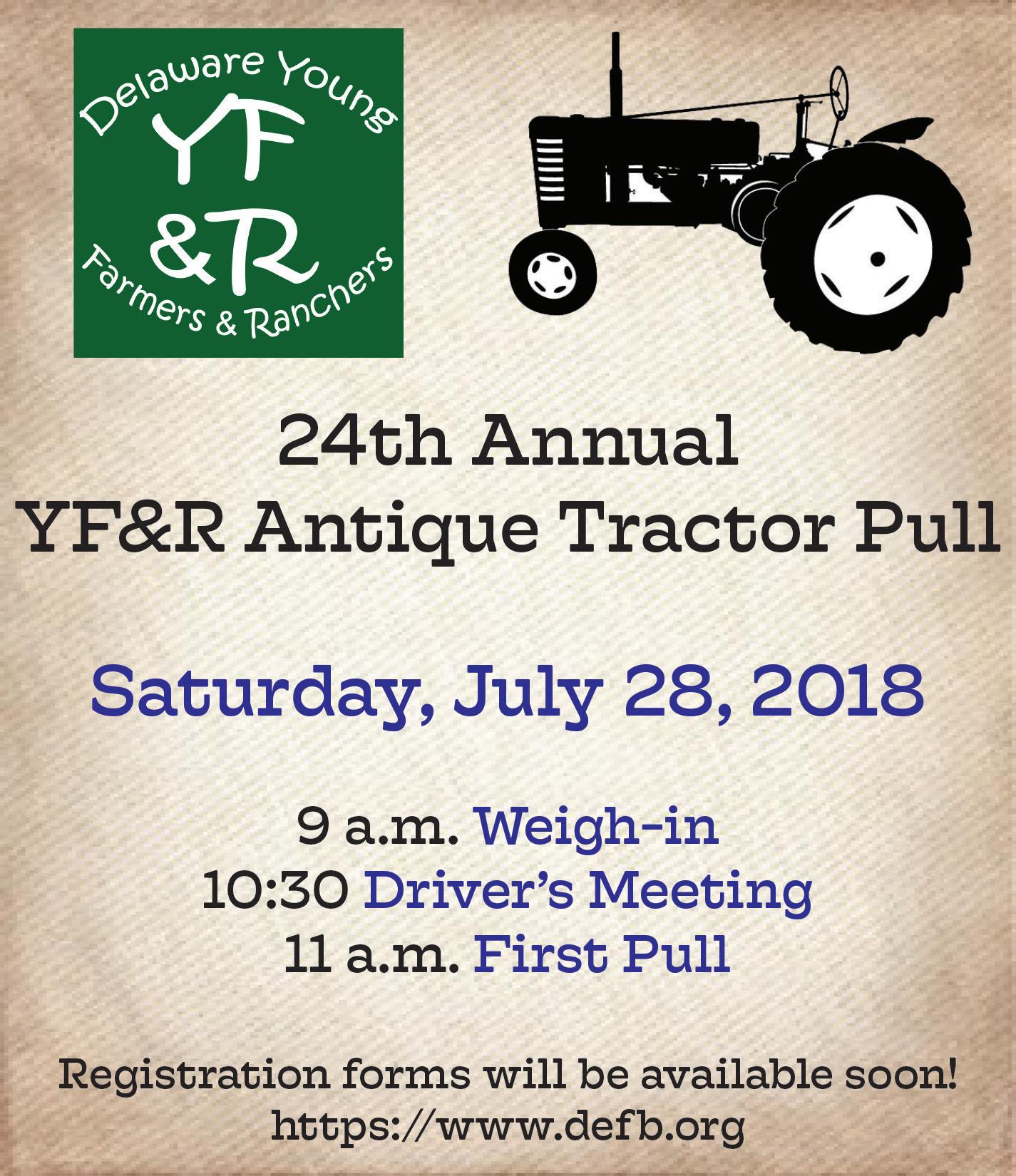

Calling all hands to Food Booth
The Delaware Farm Bureau is gearing up for another successful year with its food booth at the Delaware State Fairgrounds. The organization began operating a food booth at what was then the Kent-Sussex Fair in 1954, making it the oldest non-commercial exhibitor at the fair. In 1985, responsibility passed to the State Women’s Committee, which continues to organize the project today.
Net proceeds from the Food Booth support the Young Farmers & Ranchers Committee, Ambassador Program, Scholarship Program and Ronald McDonald House programs, including Christmas toy donations, providing and preparing a meal for families at the Ronald House and annually filling the food pantry for families staying at the Ronald Room in BayHealth hospital in Dover.
Proceeds also provide the funds necessary to repair and upgrade food equipment.
New this year is a second french fry machine which should speed up production of the much-indemand fries and alleviate the back-up that sometimes occurs,
said Laura Hill, chair of the Food Booth Committee.
“And, with the help of Paul Cartanza, the box refrigerator was upgraded, providing an additional 4 feet of space,” Hill said, “so we will have more storage. Special thanks to Paul Cartanza, George Scuse and the fair staff for their help in this project.”
The 2018 menu hasn’t changed. The same choices are available at both lunch and dinner: hamburgers, cheeseburgers, hot dogs, steak and cheesesteak sandwiches, chicken tenders and grilled chicken breast sandwiches — and french fries, of course. “We’ll bring back the Barnyard Burger introduced last year,” Hill said. It’s a cheeseburger served with bacon and egg, sold in a combo with french fries and a large drink.
Fresh garden salads, which can be topped with grilled chicken or chicken tenders, were introduced several years ago and have been very popular, Hill said.
Milk shakes are the Farm Bureau’s signature food at the fair.
“For years now, Hershey Ice Cream has supplied the ice cream.

Luminous will work to:
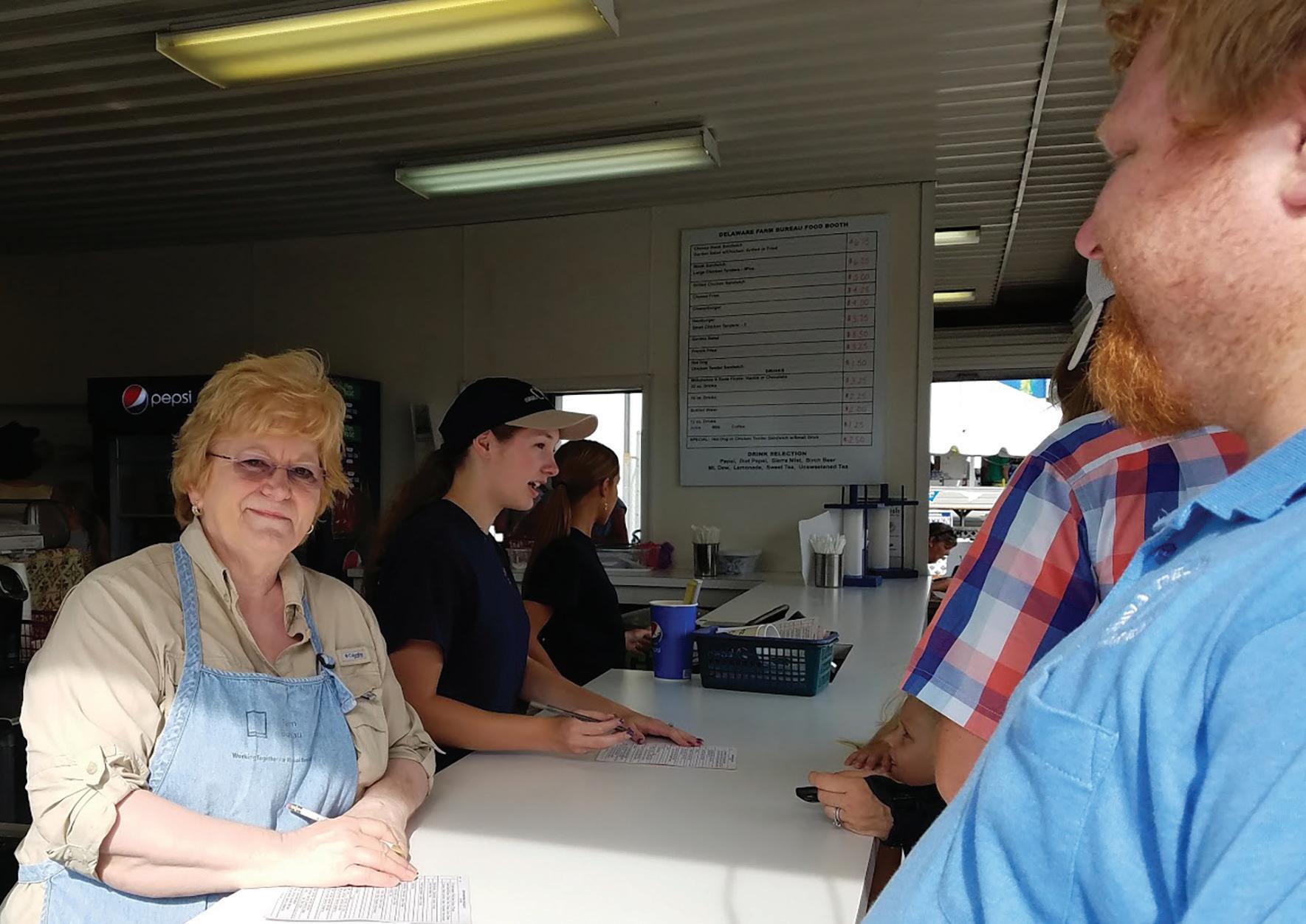
Delaware Farm Bureau President Kitty Holtz, left, volunteers regularly at the DFB's food booth at the Delaware State Fair.
We do it the old-fashioned way, using vanilla ice cream. If you want chocolate, we add chocolate syrup,” she added.
A variety of sodas, sweetened and unsweetened iced tea, bottled water and fruit juices are available, and, of course, milk!
Hill has worked at the booth since she and her husband, Roland, joined the YF&R back in the late ‘70s or ‘80s. “We always made it a point of working there. When our kids were no longer showing animals, we worked even more.
CONTINUED ON PAGE 11
“We used to do breakfast, but getting volunteers that much earlier got to be tough, so we gave up,” Hill continued. “We open at 10 a.m. and close usually by 10:30 p.m. Then it takes a good hour to clean up.”
Specializing in commercial solar system for farming operations in Delaware
The goal is significant, long term,
Specializing in commercial solar system development for farming operations in Delaware and New Jersey
Luminous will work to:
Specializing in commercial solar system development for farms in Delaware and New Jersey. The goal is significant, long term, electricity savings.
The goal is significant, long term, electricity savings.
• Obtain a USDA REAP Grant for you to offset a sizable portion of the solar system
• Prepare an SREC Bid to pay you for generating clean energy in Delaware
• Obtain a USDA REAP Grant for you to offset a sizable portion of the solar system cost
• Support an Energize Delaware Farm Program low interest loan application
• Prepare an SREC Bid to pay you for generating clean energy in Delaware
Grant for you to offset a sizable portion of the solar system cost pay you for generating clean energy in Delaware Delaware Farm Program low interest loan application
Grant and bid deadlines are coming up in April so it’s important to get started now.
• Support an Energize Delaware Farm Program low interest loan application
coming up in April so it’s important to get started now.
Grant and bid deadlines are coming up in April so it’s important to get started now.
We manage the process from site assessment to operation & maintenance. Contact schedule a site visit and for a brief discussion with no obligation. Thanks, and I look forward to speaking with you.
We manage the process from site assessment to operation & maintenance. Contact Luminous to schedule a site visit and for a brief discussion with no obligation.
from site assessment to operation & maintenance. Contact Luminous to for a brief discussion with no obligation. Thanks, and I look forward to
andy@luminoussolar.com
Direct: 302-547-7607
andy@luminoussolar.com
Office: 888-282-3556
Direct: 302-547-7607
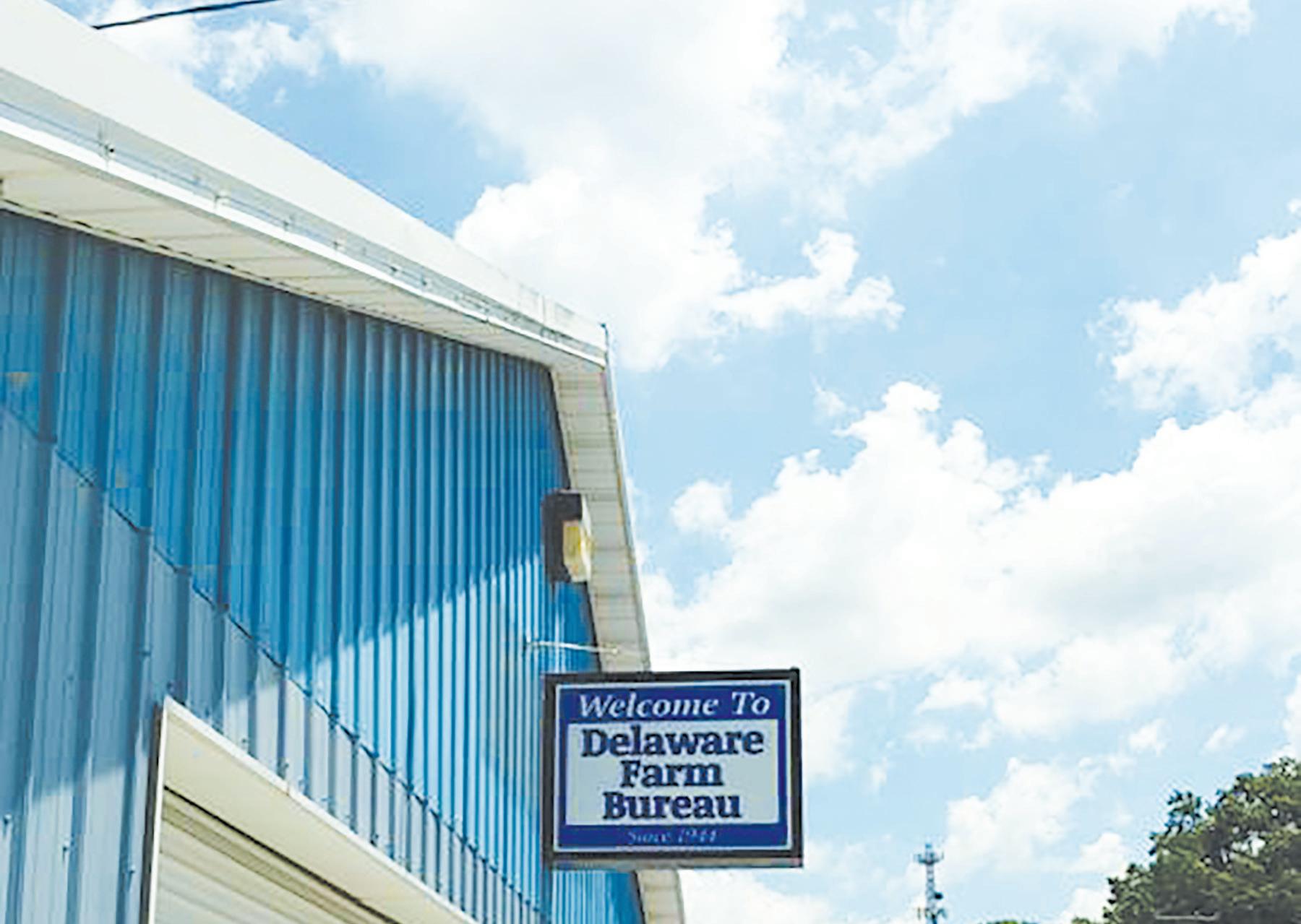
Office: 888-282-3556
www.luminoussolar.com
www.luminoussolar.com
Delaware and New Jersey Farm
DE Lic. #2016606409 and NJ Lic. #13VH08077400
Member Delaware Farm Bureau and New Jersey Farm Bureau
DE Lic. #2016606409 NJ
#13VH08077400
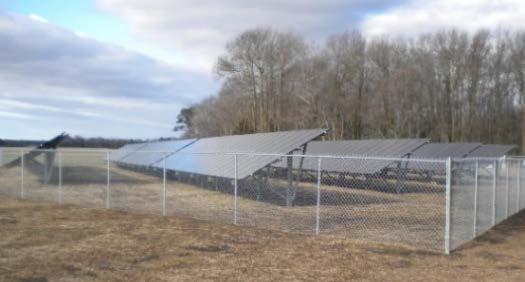
Nationwide: Top 10 agribusiness insurance claims
Motor vehicle accidents are the most common agribusiness insurance claim, according to insurer Nationwide®. The Ohio-based insurer, the nation’s largest insurer of farms, said that over the last three years, the top 10 claim types have accounted for more than 50,000 claims by its agribusiness customers.
Here are the top 10 commercial agribusiness claims received by Nationwide in 2017:
Top
10 Agribusiness Insurance Claims
1. Motor Vehicle Accidents
2. Workers Compensation for Disability or Death
3. Misapplication of Chemicals or Drift
4. Slip, Fall or Injury
5. Food Related Claim
6. Animal Caused Damage or Bite
7. Glass Breakage
8. Wind Damage
9. Hail or Lightning Damage
10. Fire Damage or Loss
“By sharing our top claims data, we hope to help agribusiness owners recognize areas of their operation that may need increased safety precautions,” said Carol Alvarez, vice president of claims for Nationwide. “These national trends can help business owners pinpoint areas where they can take extra measure to keep their employees, products and equipment safe.”
Over the past three years, motor vehicles accidents have accounted for more than 20,000 of Nationwide’s total commercial agribusiness claims. Nationwide’s data for these accidents show the following trends in frequency and severity:
Most Frequent Accidents
1. Rear end accidents
2. Backing into vehicles
Calling all hands to Food Booth ...
CONTINUED FROM PAGE 10
“One day, Barbara Sapp shared that she was ‘grooming’ me to take over. That was 2001, I think. But she is still here, every day.”
Barbara still serves as the vice chair of the committee, Hill said.
“We are fortunate to have very committed committee members: Connie Fox, Mary Gooden, June Unruh, Sandy Virdin, Tommy Collier and Jan Cartanza. Although not officially on the committee, Tommy Collier’s son, Adam, and daughter, Casey; Connie Fox’s daughter, Christine McGee, and grandson, Christopher Fox; Leolga Wright, as well as DFB President, Kitty Holtz all volunteer! Paul and Jan Cartanza power wash the building each year in preparation for fair week. The Food Booth cer-
tainly would not be as successful without their time and dedication.
“Anyone who wants to work, we welcome them, especially on Monday, July 16, when we are cleaning! We will begin at 8:30 a.m. that day. Thursday, July 19, is Sussex County Farm Bureau day. Even if you’re not from Sussex, we won’t turn you away.
“Friday is Kent County’s day; Saturday is New Castle County’s. On Sunday, the YF&R will man the booth. The week of July 23 through 27, we will welcome 4-H and FFA groups to help. There are 10 youth groups who have been doing that for about 10 years. We donate $500 to organizations for serving those shifts, two shifts per day. It takes 10 to 14 people per shift.”
3. Accidental strike of stationary object
Accidents Causing
Most Significant Damage
1. Overturned vehicles
2. Head on collisions
3. Intersection accidents
Nationwide recommends the following risk management tips to help agribusinesses reduce motor vehicle accidents and keep employees safe:
• Embrace safety technology by equipping vehicles with collision mitigation and telematics monitoring systems.
• Develop standard hiring criteria for drivers comprised of new driver orientations and documented training.
• Develop “safe following distance” and “distracted driving” policies that include comprehensive training and procedure enforcement.
• Be aware of advanced safety benefits in newer trucks, such as electronic stability control systems to prevent overturn.
• Provide additional documented training for commercial truck drivers with tanker endorsements, and those carrying high center of gravity loads.
To learn more, visit nationwide. com/dfb.
Products underwritten by Nationwide Agribusiness Insurance Company, Farmland Mutual Insurance Company, Allied Property and Casualty Insurance Company and AMCO Insurance Company. Products and discounts not available to all persons in all states. Nationwide, the Nationwide N and Eagle and Nationwide is on your side are service marks of Nationwide Mutual Insurance Company. © 2018 Nationwide.

The DFB Food Booth is across the street from the grandstand at the Delaware State Fairgrounds in Harrington.
The fair closes on July 28, a day when all three county farm bureaus are asked to help. Then on Monday, July 30, volunteers return to do a final cleaning, close up and put everything away.
The Delaware Farm Bureau food booth is at 134 East Rider Street, a blue building near the east end of the grandstand.
If you are willing to volunteer your services for even part of a day, please call the DFB state office at (302) 697-3183.


